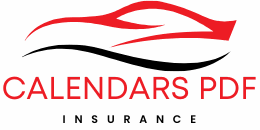Homeowners insurance premiums have steadily been on the rise, yet there are effective strategies available to manage them without compromising coverage. Bundling policies or increasing deductibles could lower premiums considerably.
Installation of loss prevention features like burglar alarms and smart smoke detectors can qualify you for discounts, while it is equally important to insure other structures on your property even after their value has decreased.
1. Bundle Your Policies
Shopping around for home and auto insurance on a regular basis to compare prices can be beneficial, but beware sacrificing coverage just for the lowest prices. Lower premiums often lead to reduced coverage limits in case of a claim; thus making you vulnerable in that event. Experts advise speaking to an insurance agent in order to find an optimal balance between cost and coverage.
Bundling policies with one company often results in significant discounts. If you combine home and auto policies under the same provider, for instance, significant savings could be available across both policies. Furthermore, consolidating can make management simpler as less phone numbers, passwords, or login credentials need to be tracked down and kept track of.
Bundling policies is also an effective way to lower your deductible costs and save money on them, since having consistent deductibles across your policies can significantly decrease how much money you pay out-of-pocket in case of a claim.
Some insurers also provide coverage for pets, boats and valuables in addition to home and auto policies. Nationwide provides an array of products and services tailored specifically for homeowners and renters as well as retirement plans and annuities; the company was even named the winner of 2025 Bundling Competition!
2. Increase Your Deductible
Home insurance premiums have steadily risen over the years due to natural disasters and inflation; however, there are effective strategies that can help homeowners reduce their premiums without compromising coverage.
Consider raising your deductible. A higher deductible reduces how much you have to pay in the event of a claim and can save 12% over 10 years according to NerdWallet. However, before making this change it’s essential that you carefully consider both your financial situation and savings as you will need enough savings set aside to cover a higher deductible in case there’s ever any need to file one.
Installing protective devices such as smoke alarms and security systems could qualify you for discounts that lower your premium. Many homeowners insurance providers also provide loyalty discounts if customers stay with one insurer over time.
Proper property maintenance and removal of hazards that increase risk is of paramount importance to keep costs under control when covered causes of loss occur. Your rating classification – determined by factors like exterior siding and paint conditions, concrete surrounding your house, roof condition and appliances — can have an immediate effect on premiums; and making timely payments will reduce claims risk by showing financial responsibility.
3. Protect Your Property
With mortgage and home insurance costs increasing, homeowners are searching for ways to lower expenses without compromising coverage. While certain factors that determine homeowners insurance premiums may be beyond your control, you can still take steps to manage costs and bring down the premium in 2025.
Make sure your property is well protected against theft, fire and severe weather damage by installing protective devices such as security systems, smoke detectors and water leak sensors. Doing this may reduce premiums as risk is decreased while upgrading electrical and plumbing systems could also help lower them significantly.
Other preventive measures could include installing locks on doors and windows, planting trees or shrubs to block wind and debris, as well as clearing away any flammable brush around your house. Furthermore, you could create an engaged community by joining a neighborhood watch program to deter criminality while keeping tabs on suspicious activity.
Maintaining a good credit score can also save money, since insurers consider your score when assessing risk and setting rates. Doing this requires making payments on time, minimizing debt and monitoring your report for errors – steps which could have a dramatic effect on insurance premiums.
4. Increase Your Credit Score
As homeowners insurance costs have steadily risen across the nation, many are searching for ways to cut costs without compromising coverage. Luckily, there are effective strategies available that could lower premiums in 2025.
One of the key steps you can take towards saving on home insurance is improving your credit score. While this may not seem directly beneficial, carriers do check a homeowner’s credit-based insurance scores when determining eligibility and rates – these differ from regular credit scores because they consider factors such as how much debt there is compared to available credit, whether or not bankruptcy was filed previously, how recently medical debt went to collections etc.
Low credit scores typically translate to greater risk for insurers, leading to higher premiums and potentially helping you save on home and property insurance in 2025. Raising your score to higher range can lower premium costs considerably.
Additional factors that can have an effect on your rate include your loss history, home construction type and type, proximity to fire hydrants/stations/alarms and whether/not smoke detectors and alarms exist in your house – to name just a few! For 2025 homeowners insurance savings it is worth asking insurers or agents about any discounts available such as bundling multiple policies together or installing protective devices within your home.




